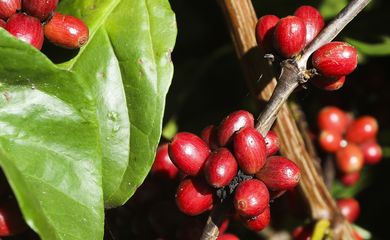Brazil exports record‑breaking 46.3 million bags of coffee

In November this year, Brazil exported 4.66 million 60kg bags of coffee. The result—5.4 percent higher than in the same month in 2023, when the country sold 4.42 million bags of the product to foreign markets—set a new record for the coffee sector. One month before the end of the year, Brazilian producers had shipped a total of 46.399 million bags, 3.78 percent more than the highest volume recorded so far—44.707 million bags over the 12 months of 2020.

According to the Brazilian Coffee Exporters Council (Cecafé), the organization that published the statistics Monday (Dec. 9), Brazil received $1.343 billion from foreign sales of the product in November alone—up 62.7 percent from the $825.7 million recorded in the same month in 2023. If we compare the revenues from January to November this year ($11.30 billion) to the same period in 2023 ($9.24 billion), the growth comes to 22.3 percent.
By the end of November, the main importers of Brazilian coffee were the US (7.419 million bags, or 16 percent of the total), Germany (7.228 million), Belgium (4.070 million), Italy (3.702 million), and Japan (2.053 million), with the Japanese importing 0.3 percent less this year than in the same period in 2023.
The type of coffee that Brazil has exported the most in 2024 continues to be arabica—over 33.97 million bags. According to Cecafé, this volume, up 23.2 percent from the same span last year, is the highest ever for the 11-month period. Canephora comes next in the ranking.
Top-quality coffees and coffees certified as following sustainable practices accounted for 17.5 percent of Brazil’s total exports from January to November 2024, with 8.112 million bags shipped abroad. This volume is 33.5 percent higher than that recorded in the first 11 months of last year. The average price of the product was $269.41 per bag, generating foreign exchange revenue of $2.185 billion, or 19.3 percent of the total obtained.



